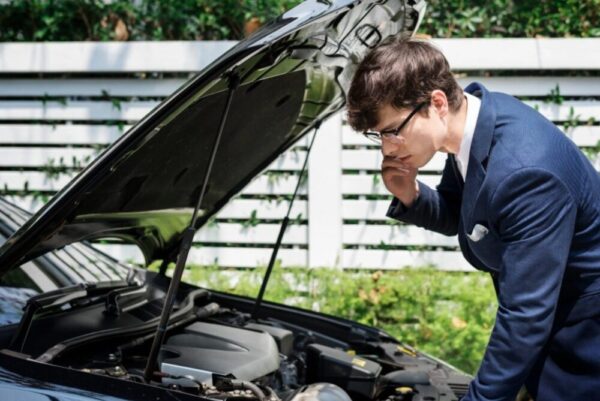Extended warranties are a great way to protect expensive appliances and other household items, but they can be confusing because each warranty is different. The term “extended warranty” isn’t really a warranty; rather, it’s an insurance policy for your car. It protects you against expensive, unanticipated repairs by providing coverage for an agreed-upon length of time and miles. Warranty terms, on the other hand, are included in the purchase price of the goods. Extended automobile service contracts are vehicle service contracts since they cost extra and are sold separately. You could also click here to find out more.
Two Types of Extended Warranties
The first thing you need to know is there are two basic types of extended warranties that carmakers offer. Under the first type, if your car is too expensive or too hard to replace, they will pay you the depreciated value of the vehicle. The second provides repair coverage for a certain number of years and/or miles.
What is Covered?

Car manufacturers decide what repairs are covered by their warranties, so read your owner’s manual to understand what they cover before purchasing an extended warranty. To avoid misunderstandings about how it works, ask these questions:
Do I have to maintain my service contract with the dealership where I bought my car?
Some extended warranties require that you take your car in for regular maintenance at specified dealers. You’ll see this requirement most often with warranties that include only roadside assistance. However, most extended warranties allow you to service your car at any authorized dealer, and most dealers honor the warranties provided by other brands.
Does my warranty provide for a rental car?
If you can’t wait for your car or truck to be fixed (or if it’s inoperable), many extended warranties will rent you a comparable vehicle. The cost of this benefit varies with the length of your warranty and may be prorated by mileage or time.
What is Not Covered?

When looking at the fine print, keep in mind that your warranty won’t cover:
- Wear and tear – If something needs to be repaired because it wore out after the manufacturer’s warranty expired, expect to pay for those repairs yourself. You might even be asked to prove that the part failed because of normal wear and tear.
- Cosmetic damage – If your car’s paint job is faded or a door dinged, you’ll have to pay for those repairs yourself even though they aren’t mechanical in nature.
- Modifications – Some carmakers prevent their computers from working properly with nonfactory parts, so be sure your extended warranty company allows aftermarket modifications before spending money on them. The general rule is that if the warranty requires dealer maintenance, it will not cover aftermarket modifications.
How long will you actually be covered?
You’ll need to know how long your warranty lasts and what happens when it expires. The two most common types of coverage are:
A limited “bumper-to-bumper” warranty that covers all parts except those considered normal wear items, such as brake pads. These plans usually last for the first three years or 36,000 miles of vehicle use; whichever comes first. An “extended service contract” that provides coverage for a specific number of years and/or miles (for example, five years or 50,000 miles). To keep your extended warranty in effect while you pay off an auto loan, find out if the company will subtract the monthly cost from your car payments. If not, ask about other payment options.
You may pay for your extended service plan all at once, in installments, or in a single payment. Some people like to pay the entire cost of their warranty upfront because it reduces what they owe on their car loan if they’re still making payments…
How much will you have to pay?

Before you sign on the dotted line, find out how much your extended warranty will cost. Two factors determine the price of most plans:
The term of coverage – The longer the warranty, the more you’ll pay for it. Most people find one to three years is sufficient. If you keep your car for a long time or trade it in before it’s covered by an extended warranty term, you may have to pay for repairs yourself. The length of time you can expect to use your car or truck – The longer you own it, the more money you’ll spend on an extended warranty.
It’s possible that the company could go out of business. If this occurs, find out exactly what would happen in that situation…
How will you make a warranty claim?
Before signing, ask how you can file a claim. Find out if your company requires you to submit all the paperwork, or if they’ll supply it for you. You don’t want to be filing claims on your own – at least not until you’re familiar with the process.
What type of warranty do I need?

Here are some of the most common options:
- FULL WARRANTY/ LONGLIFE – covers repairs for a specific period and either a set number of miles or years (e.g., three years and 100,000 miles). This warranty is usually the least expensive.
- FULL-SERVICE PLAN – generally provides coverage for the full length of the car’s warranty (usually three years or 100,000 miles) and includes all normal maintenance.
- PARTS, LABOR AND MISC – provides coverage for parts and labor required to make repairs at no additional charge (e.g., $50 deductible).
- POWERTRAIN – covers all engine, transmission, and drive axle components.
- FUEL SYSTEM – covers fuel lines, pumps, and injectors.
- COLLISION – covers damage caused by an accident with another vehicle or object (e.g., a fence or telephone pole).
- ROADSIDE ASSISTANCE – pays for towing expenses, such as flat tires and dead batteries, when you’re stranded.
- OTHER TYPES OF COVERAGE – glass breakage, car rental, and towing and labor coverage.
If possible, get a written estimate of the cost for any repairs that will be covered by your warranty before work begins so you know what to expect should anything happen.
Confusion can arise when purchasing an extended warranty because companies don’t use the same definitions when describing the coverage. Be specific about what it covers and confirm everything in writing. Know what you’re buying and what you’re not. If it’s important, read the warranty contract carefully and ask questions if there is anything that isn’t clear.




